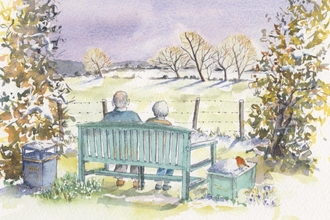We know that thinking about writing a will can be a daunting experience: where do you start? How long does the process take? How much is it going to cost? All of these questions can be exhausting and if you aren’t sure where to begin, it’s easy to put this on your to do list and leave it for another day.
Thankfully, there is now lots of help available if you’re thinking about writing a will but aren’t sure where to begin. As well as special weeks like Remember a Charity Week, many organisations such as Octopus Legacy and Morecambe Bay Wills and Estates now offer free will writing services and free will reviews, and can reassure you about some of the myths surrounding gifts in wills. Here are some of the most common.
Myth 1: Making a will is expensive
A typical will, will cost around £150, but do check with your local solicitor as they may have offers such as a special reduced price. It’s also worth keeping an eye out for Will campaign weeks such as Remember a Charity Week. Many solicitors will offer reduced will writing or even free Will writing services during these weeks.
Lancashire Wildlife Trust has recently partnered with Guardian Angel, who offer free wills online, and Morecambe Bay Wills and Estates, who offer free will reviews and other offers for our members. There's no catch - it’s free for you and free to us.
Myth 2: Making a will is complicated
Writing or updating your will doesn’t need to be difficult or take up a lot of your time. It can take less than one hour to write a will, but being prepared is key. Remember a Charity have created an easy to follow guide for getting started on your will.
Octopus Legacy also have an online scoring system, so you can see how prepared you are already to write your will. Complete the quiz here and find out your score.
After you've received your score, if you're ready to, you can write your will online for free with them.






